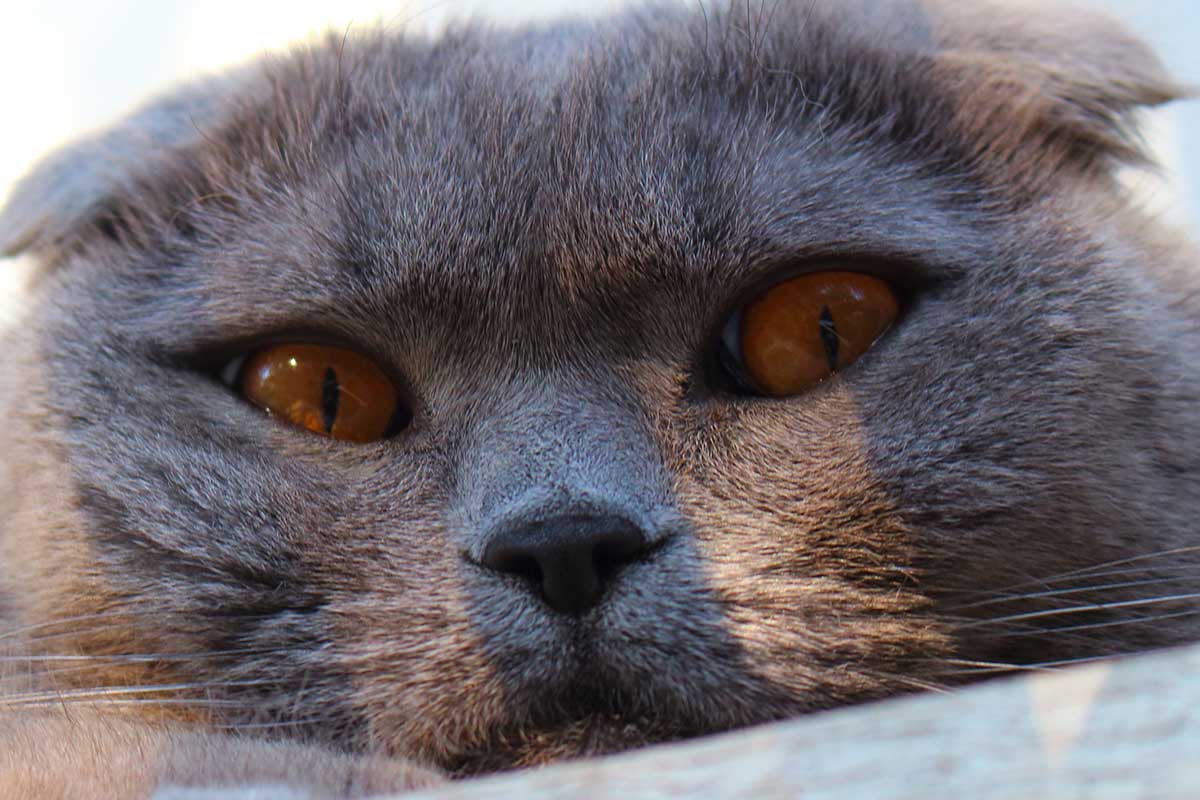Do cats develop fears of loud noises such as fireworks? You bet! Cats have keen hearing that is as sensitive as that of dogs. We don’t always recognize that a cat may be fearful of loud noises because unlike dogs, who may engage in destructive behavior in an attempt to escape, the typical feline response is to scary sounds is simply run and hide under the bed.
That doesn’t mean, though, that cats can’t benefit from some Fear Free approaches to soothe their angst. Here’s what you should know about recognizing feline fear of loud noises and how you can help your cat cope.
Fears of loud or unexpected noises are triggered by what’s called the orienting response, the brain’s mechanism for being aware. When cats hear loud noises, the brain instantly processes them to determine if they signal danger. If the cat is unsure, his default behavior is going to be to run and hide. Physiologically, his heart and respiratory rate increase, and his blood pressure goes up.
There’s nothing wrong with that; it’s a perfectly sensible response to something frightening, especially if you’re a cat. But if your cat exhibits more severe signs of fright such as excessive salivation, redirected aggression—scratching a person, for instance, in response to the frightening sound—or biting or chewing at herself, consider seeking help from a Fear Free certified professional.
Ways to help cats who are fearful of loud noises include desensitization and counterconditioning; the use of music, compression garments or synthetic pheromones; nutraceuticals; or medication.
For instance, it may help to reduce a cat’s overall level of fear by exposing her to the sound of fireworks (or thunder or vacuum cleaners) through audio CDs. Accustom the cat to the fearsome noise by gradually increasing the volume and duration of the sounds over a period of time. Give treats or other rewards such as play with a favorite toy when she remains calm.
Some cats respond well to feline pheromone sprays or diffusers. The synthetic substances mimic the soothing facial pheromones cats produce. The calming chemicals are odor-free to humans but send signals of safety to cats.
Zylkene is a nutraceutical containing a hydrolyzed milk protein that helps cats behave in a more relaxed manner. In addition to its calming benefits, the powder is highly palatable to most cats, a real plus for felines whose stress gets ramped up when they have to take a pill. Ideally your cat will be on this for two days prior to a predictable noise event such as fireworks, or throughout thunderstorm season if necessary.
How about a snug hug? Not from you but from a close-fitting garment such as a Thundershirt. Compression wear may lend a cat a feeling of security.
If one type of sound such as fireworks can frighten cats, another can help to relax them: music. Three recent studies have found that soothing yoga music and classical music reduced cats’ respiratory rates and levels of aggression in stressful situations. Try playing harp music, classical sounds, soft jazz or music specifically developed for cats.
Finally, in severe cases, medication may help a cat to remain calm in the event of a nearby fireworks show or a violent thunderstorm.
This article was reviewed/edited by board-certified veterinary behaviorist Dr. Kenneth Martin and/or veterinary technician specialist in behavior Debbie Martin, LVT.
Kim Campbell Thornton is content manager for Fear Free Pets and is an Elite Fear Free Certified Professional. She has been writing about dogs, cats, wildlife, and marine life since 1985 and is a recipient of multiple awards from the Cat Writers Association, Dog Writers Association of America, and American Society of Journalists and Authors. When she’s not writing or editing, she’s competing in nose work trials with Harper and Keeper, her Cavalier King Charles Spaniels.
Want to stay in the loop on the latest and greatest in keeping your pet happy and healthy? Sign up for our free newsletter by clicking here!








